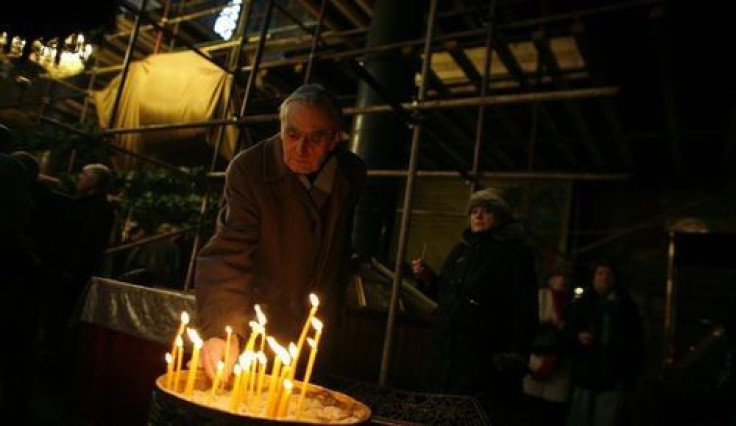Fifty-Six Years Later, Hungary Arrests Ex-Communist Minister For War Crimes

Bela Biszku, the last surviving member of the Communist leadership that crushed the 1956 Hungarian Revolution on the backs of Soviet tanks, was living a quiet life until Monday, when he was placed under house arrest and charged with the deaths of about 50 of the conflict's 3,000 victims.
He denies the charges.
Why now, 23 years after communism fell in Eastern Europe, and 44 years after the 1968 New York Convention that, according to the BBC, "brought those responsible for war crimes to justice," is Biszku finally being prosecuted?
Budapest's chief prosecutor, Tibor Ibolya, said Hungary's "Biszku Law," enacted last year, allowed the New York Convention to be "incorporated into Hungarian law," the BBC reports.
The Budapest Prosecution Service was able to open a case against Biszku on Feb. 28 of this year, following an complaint filed against him. On Feb. 17, the nationalist Jobbik party filed an official criminal complaint against him for the deaths in the 1956 uprising, the Hungarian news outlet The Budapest Times reported.
"Today ... prosecutors have detained and heard as a suspect Bela Biszku, one of the key designers and one of those responsible for the reprisals that followed the 1956 revolution and uprising," Ibolya told a news conference, according to Reuters.
Ibolya also said Biszku refused to make a statement to prosecutors, but was in "good shape."
Biszku was interior minister in the hard-line Communist regime that followed the suppression of the revolt, serving from 1957 from 1961. He also served as deputy prime minister in 1961 and 1962.
Biszku be 91 on Thursday. If he is found guilty, he could spend up to three years in jail.
© Copyright IBTimes 2024. All rights reserved.












